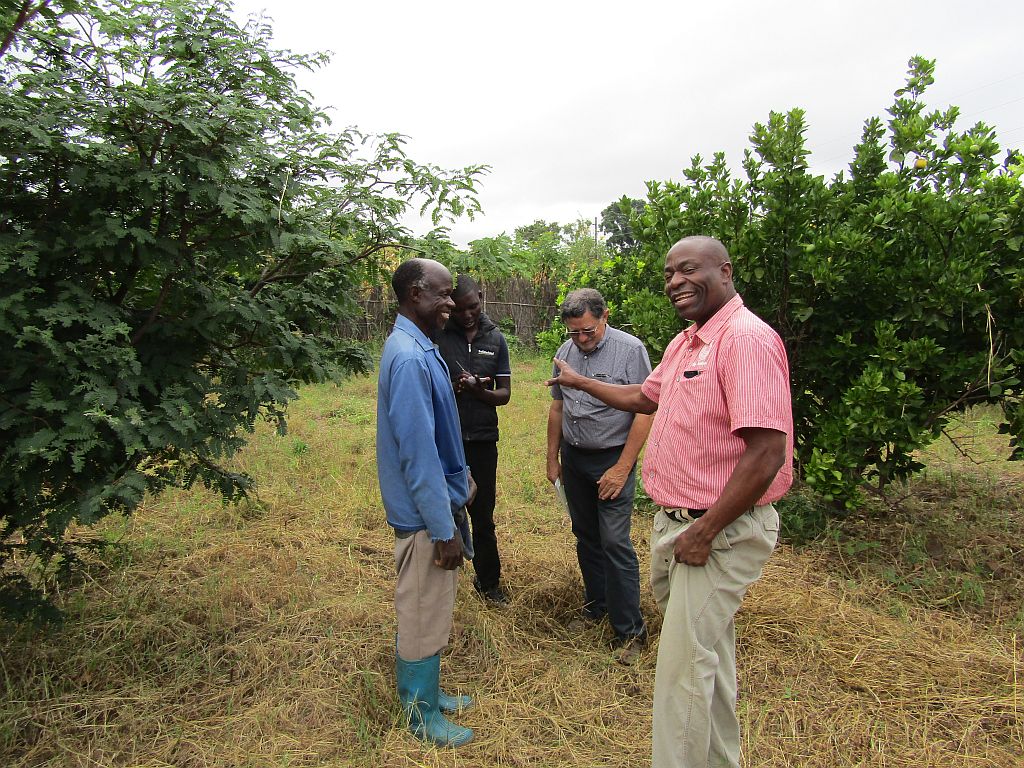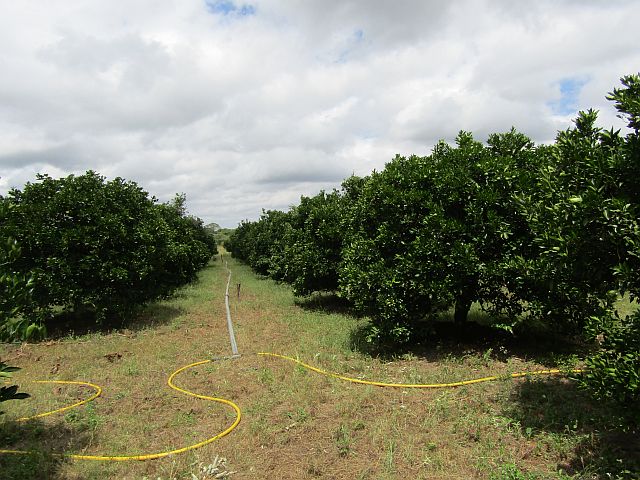
Thomas, his family and a handful of workers cultivate some vegetables and maize on Zimba Farm, but their main crop is citrus. They used to deliver the oranges from their 3,000 trees to Zambia’s capital Lusaka, but the market there is now flooded with South African imports. Positioning themselves a community farm, they have been selling their produce on-site to local people, but revenues have slowed.
Time for change
Solidaridad’s Fruit and Vegetable programme has now come on board to help Thomas revitalize the orchards. “Mr Zimba has challenges with market access, but his most immediate problem is the quality of his production,” explains project manager Friday Siwale, Solidaridad’s programme manager for fruit and vegetables in Zambia. “Some of the trees are up to 30 years old, which means they are producing a substandard harvest. At the same time, other citrus varieties have become popular with consumers: farmers constantly need to improve to retain market appeal.”

The simple but effective irrigation system
Efficient use of water
While the trees need attention, Thomas had the foresight to build an irrigation system for his 12-hectare farm. This has served him well at a time of climate volatility and unpredictable rainfall patterns. Zimba Farm is set in a mountainous landscape and the system makes the most of the gravitational flow of water from a small spring nearby to feed a cement reservoir tank and drive the sprinklers.
The turnaround
The orchards’ overhaul is being phased as it usually takes five years for trees to yield their first economic harvest. Thomas has been trained to apply natural manure to improve soil fertility, use pest controls prudently and adopt other modern techniques for citrus farming and horticulture. That way, the existing trees and other crops remain in optimum health while new stock is gradually introduced.
“The goal is to improve efficiency without taking on debt,” says Thomas. “We may even build a new water system or expand the current one. And we will continue to work long, hard hours to figure this out and make it work. We are fully committed to it and are hopeful it can happen in today’s world.”
The goal is to improve efficiency without taking on debt" – Thomas Zimba, Zimba Farm
New opportunities
The Zambian government is planning to build a factory producing candied fruit and orange juice nearby as the local climate is so well-suited to citrus cultivation. To be completed in three years’ time, it will serve as a major off-taker for production in the area. Thomas is already planning to coordinate with other farmers and establish a strong out-grower scheme to supply the plant.
>Read more about our work in the fruit and vegetable sector
